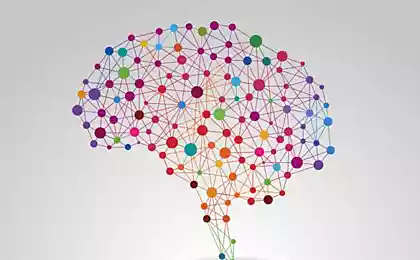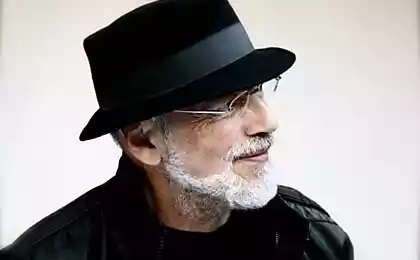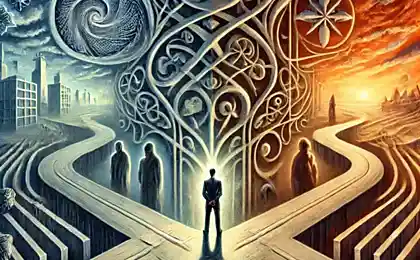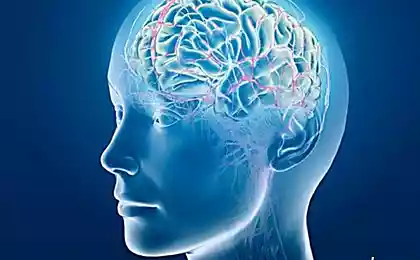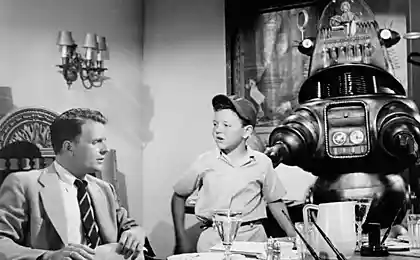605
How we make decisions
Seventy four million one hundred sixty nine thousand seven hundred twelve
Every day in the media we read articles, telling about the cruel, chilling crimes, and at the same time – stories about human kindness and sacrifice. Why people are able as first and second? The famous American blogger and journalist Jonah Lehrer in one of the chapters of his book "How we decide" talks about the mechanisms that shape the moral feeling. And localized these mechanisms in our brain.
Without emotions
Serial killer Edmund Kemper had the intellect of a genius
Criminals, distinguished unmotivated cruelty, after his capture has often been studied by researchers. As a result of these works was formulated the term "sociopath," i.e., a personality disorder characterized by disregard for social norms. What distinguishes sociopath from a normal person?
The results of most psychological tests that sociopaths do not differ from the results of ordinary people. Memory, attention, language skills – all of these mechanisms work flawlessly. The IQ level is quite high. Sometimes it is even higher than the average person. Edmund Kemper, a famous serial killer, according to tests, had an IQ of about 150 points, that is, the intellect of a genius! Other sociopaths, though not differed so outstanding performance, but in General showed a very good ability to reason. Their emotional life was extremely poor. The inner world of these people was only a combination of sexual impulses and logical reasoning. That's what turned them into killing machines, not knowing pity.
Neuroscientists have begun to identify specific violations inherent in the brain of a sociopath. Most likely, the reason lies in the disruption of the functioning of the amygdala. This area of the brain responsible for the spread of negative emotions, such as anxiety or fear. Thus, causing the pain to another, he is a sociopath feels no discomfort. Ordinary people devices were fixed excitation of the amygdala from even thinking about committing a crime.
Mind – lawyer feelings
What processes are going on in the brain? A mystery...
From the time of the Enlightenment it was believed that morality has a rational basis. Immanuel Kant argued that moral choices are just a result of reasoning and reflection. And the more carefully pondered the moral decision, the higher the likelihood that a person will do the right thing. Immorality was recognized to be illogical. The concept of "good" and "evil" applied to the field of logic.
Why do sociopaths not lost the ability to think logically, did so far from the concepts of morality actions? The thing is that actually moral convictions are formed not logically. Notions about moral and immoral are closely connected with the emotional sphere. When the average person sees a scene of violence, even staged, in his body starts physiological
reaction: increased blood pressure, increased sweating. Moreover, even the words one way or another connected with the sphere of violence ("kill", "maim") cause a similar reaction, only in a "minimized", invisible without special instruments.
An emotional response to the message of violence is always primary. It is a rational reaction. Only after the generated emotion, the work included the mind, which looks for the grounds for our judgment. The mind acts as an advocate for emotions. As he wrote Benjamin Franklin: "it is Convenient to be a reasonable being, it allows a person to find and come up with a reason for what he intends to do."
Sociopaths don't feel remorse just because you don't know what it is. Their rational brain is working accurately and due to the lack of emotions is a attorney that authorizes the person to do everything...
The experiences of the hero of the novel of F. M. Dostoevsky's "Crime and punishment", Rodion Raskolnikov completely incomprehensible to a sociopath: he is not able to experience the horror of the offense.
Looking at you, like in a mirror.
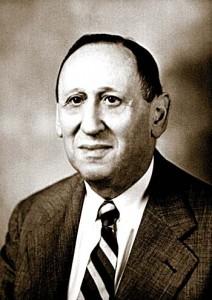
Dr. Leo Kanner, the first who made the diagnosis autism
Although himself a sociopath is unable to feel emotions, but he can make right conclusions about what other people are experiencing: fear, pain, frustration. In this case, works a different part of the brain – a small group of cells that scientists call mirror neurons.
These cells reflect the state of other people. By reading the facial expressions of the other, your brain is the idea of what is happening in human consciousness. One of the cells discovered scientists, Giacomo Rizzolatti, writes that mirror neurons "allow us to quickly understand what is happening in the minds of other people, not through reasoning but through direct simulation – through feelings and not thoughts."
Violation in the work of mirror neurons, a number of scholars explain such disease as autism. For autistic extremely challenging all forms of social interaction, as it is difficult to recognize and interpret emotions of other people. Dr. Leo Kanner, was first delivered in 1943, a group of eleven children diagnosed with autism, a disease called "syndrome of emergency loneliness" (autos in Greek means "self").
Simon Baron-Cohen, a psychologist at the University of Cambridge engaged in the study of autism, called this disease the "blind brain". After all, what other people perceive automatically, autistic – the secret behind seven seals.
Scientists from the University of California at Los Angeles conducted the following experiment: autism showed photographs of people experiencing different emotions. At this time, pictures were taken of the brain of patients. These images were recorded lack of activity in the area, where mirror neurons. Thus, autism is no less obvious to the average person, the connection between facial expressions and emotions. For them, a smile means joy, and tears of grief. In this case the autistic, unlike a sociopath, able to experience emotions.
Other studies conducted by researchers from Yale University revealed another peculiarity of the brain of autistic people. The fact that face recognition in our brain a special area – the fusiform gyrus, which in patients with autism "doesn't work". When autistic looks at the man, his brain aktiviziruyutsya inferior temporal gyrus – the one that is responsible for the analysis of visual images of inanimate objects. Thus, the autistic perceives the other person as well as, say, a table or chair.
The lack of activity of mirror neurons and the fusiform gyrus leads to the fact that a person with autism as closed in itself, almost completely lost the understanding of the mental lives of others.
"Blind spot"
But the mechanism of empathy the average person is far from perfect. One of these "blind spots" of our perception is illustrated which has become an aphorism by quoting from the novel by E. M. Remarque "Black obelisk", "the Death of one man is a tragedy, the death of millions – statistics".
The gender of the Word, a scientist from the University of Oregon
conducted a fairly simple experiment. One group of subjects showed a photo of a starving African child and the other simply reported statistics on the number of hungry people in Malawi and Ethiopia. Both groups of people have offered to donate to a charitable organization. And – interestingly – the first group have donated twice!
The information submitted in the form of facts and figures, does not affect our emotions and therefore does not include a moral mechanism. Therefore, in order to experience compassion, it is necessary to focus on the tragedy of one man, recognizing him from the crowd.
Only the direct perception of emotions in others allows us to experience compassion. Why most people do not like to personally tell others bad news? Strange pain instantly reflected our mirror neurons, whether we like it or not.
Of course, the ability to empathize each individual. And much of the moral character of the person is formed in society: cruelty begets cruelty, indifference leads to apathy, and kindness resonates in the hearts – if not everyone, then most.
Author: Emilia Galagan
Source: /users/1077
Every day in the media we read articles, telling about the cruel, chilling crimes, and at the same time – stories about human kindness and sacrifice. Why people are able as first and second? The famous American blogger and journalist Jonah Lehrer in one of the chapters of his book "How we decide" talks about the mechanisms that shape the moral feeling. And localized these mechanisms in our brain.
Without emotions

Serial killer Edmund Kemper had the intellect of a genius
Criminals, distinguished unmotivated cruelty, after his capture has often been studied by researchers. As a result of these works was formulated the term "sociopath," i.e., a personality disorder characterized by disregard for social norms. What distinguishes sociopath from a normal person?
The results of most psychological tests that sociopaths do not differ from the results of ordinary people. Memory, attention, language skills – all of these mechanisms work flawlessly. The IQ level is quite high. Sometimes it is even higher than the average person. Edmund Kemper, a famous serial killer, according to tests, had an IQ of about 150 points, that is, the intellect of a genius! Other sociopaths, though not differed so outstanding performance, but in General showed a very good ability to reason. Their emotional life was extremely poor. The inner world of these people was only a combination of sexual impulses and logical reasoning. That's what turned them into killing machines, not knowing pity.
Neuroscientists have begun to identify specific violations inherent in the brain of a sociopath. Most likely, the reason lies in the disruption of the functioning of the amygdala. This area of the brain responsible for the spread of negative emotions, such as anxiety or fear. Thus, causing the pain to another, he is a sociopath feels no discomfort. Ordinary people devices were fixed excitation of the amygdala from even thinking about committing a crime.
Mind – lawyer feelings
What processes are going on in the brain? A mystery...
From the time of the Enlightenment it was believed that morality has a rational basis. Immanuel Kant argued that moral choices are just a result of reasoning and reflection. And the more carefully pondered the moral decision, the higher the likelihood that a person will do the right thing. Immorality was recognized to be illogical. The concept of "good" and "evil" applied to the field of logic.
Why do sociopaths not lost the ability to think logically, did so far from the concepts of morality actions? The thing is that actually moral convictions are formed not logically. Notions about moral and immoral are closely connected with the emotional sphere. When the average person sees a scene of violence, even staged, in his body starts physiological
reaction: increased blood pressure, increased sweating. Moreover, even the words one way or another connected with the sphere of violence ("kill", "maim") cause a similar reaction, only in a "minimized", invisible without special instruments.
An emotional response to the message of violence is always primary. It is a rational reaction. Only after the generated emotion, the work included the mind, which looks for the grounds for our judgment. The mind acts as an advocate for emotions. As he wrote Benjamin Franklin: "it is Convenient to be a reasonable being, it allows a person to find and come up with a reason for what he intends to do."
Sociopaths don't feel remorse just because you don't know what it is. Their rational brain is working accurately and due to the lack of emotions is a attorney that authorizes the person to do everything...
The experiences of the hero of the novel of F. M. Dostoevsky's "Crime and punishment", Rodion Raskolnikov completely incomprehensible to a sociopath: he is not able to experience the horror of the offense.
Looking at you, like in a mirror.

Dr. Leo Kanner, the first who made the diagnosis autism
Although himself a sociopath is unable to feel emotions, but he can make right conclusions about what other people are experiencing: fear, pain, frustration. In this case, works a different part of the brain – a small group of cells that scientists call mirror neurons.
These cells reflect the state of other people. By reading the facial expressions of the other, your brain is the idea of what is happening in human consciousness. One of the cells discovered scientists, Giacomo Rizzolatti, writes that mirror neurons "allow us to quickly understand what is happening in the minds of other people, not through reasoning but through direct simulation – through feelings and not thoughts."
Violation in the work of mirror neurons, a number of scholars explain such disease as autism. For autistic extremely challenging all forms of social interaction, as it is difficult to recognize and interpret emotions of other people. Dr. Leo Kanner, was first delivered in 1943, a group of eleven children diagnosed with autism, a disease called "syndrome of emergency loneliness" (autos in Greek means "self").
Simon Baron-Cohen, a psychologist at the University of Cambridge engaged in the study of autism, called this disease the "blind brain". After all, what other people perceive automatically, autistic – the secret behind seven seals.
Scientists from the University of California at Los Angeles conducted the following experiment: autism showed photographs of people experiencing different emotions. At this time, pictures were taken of the brain of patients. These images were recorded lack of activity in the area, where mirror neurons. Thus, autism is no less obvious to the average person, the connection between facial expressions and emotions. For them, a smile means joy, and tears of grief. In this case the autistic, unlike a sociopath, able to experience emotions.
Other studies conducted by researchers from Yale University revealed another peculiarity of the brain of autistic people. The fact that face recognition in our brain a special area – the fusiform gyrus, which in patients with autism "doesn't work". When autistic looks at the man, his brain aktiviziruyutsya inferior temporal gyrus – the one that is responsible for the analysis of visual images of inanimate objects. Thus, the autistic perceives the other person as well as, say, a table or chair.
The lack of activity of mirror neurons and the fusiform gyrus leads to the fact that a person with autism as closed in itself, almost completely lost the understanding of the mental lives of others.
"Blind spot"
But the mechanism of empathy the average person is far from perfect. One of these "blind spots" of our perception is illustrated which has become an aphorism by quoting from the novel by E. M. Remarque "Black obelisk", "the Death of one man is a tragedy, the death of millions – statistics".
The gender of the Word, a scientist from the University of Oregon
conducted a fairly simple experiment. One group of subjects showed a photo of a starving African child and the other simply reported statistics on the number of hungry people in Malawi and Ethiopia. Both groups of people have offered to donate to a charitable organization. And – interestingly – the first group have donated twice!
The information submitted in the form of facts and figures, does not affect our emotions and therefore does not include a moral mechanism. Therefore, in order to experience compassion, it is necessary to focus on the tragedy of one man, recognizing him from the crowd.
Only the direct perception of emotions in others allows us to experience compassion. Why most people do not like to personally tell others bad news? Strange pain instantly reflected our mirror neurons, whether we like it or not.
Of course, the ability to empathize each individual. And much of the moral character of the person is formed in society: cruelty begets cruelty, indifference leads to apathy, and kindness resonates in the hearts – if not everyone, then most.
Author: Emilia Galagan
Source: /users/1077













